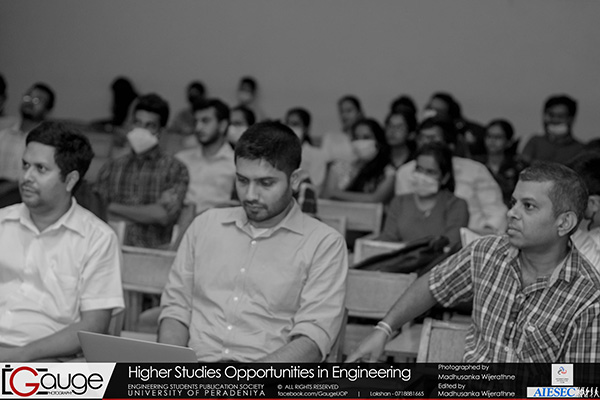InRO News
NSF to boost International Scientific Cooperation and Academic Collaboration
28 January 2020NSF plays a key role in linking the local scientific community with the global scientific community for international scientific cooperation and academic collaboration for enhanced R & D outputs through complementarity and synergy having scientific, societal and economic impact. Accordingly, a round table session was organized by the NSF on 28th January 2020 at its Auditorium for the Directors of International Units of Universities with a focus of establishing a collaborative local network involved in international scientific cooperation. The objectives of this round table discussion were:
- To share knowledge on the types of international cooperative activities carried out by the respective institutions
- To share knowledge about the available opportunities for further international collaboration
- To identify synergies and to explore possibilities of establishing local linkages to carry out the international cooperative scientific activities more effectively
Representatives from EU, JICA and SL Fulbright Commission, Sri Lanka National Commission for UNESCO and 14 universities participated at this event. Dr Shameen Jinadasa, current Director of the International Relations Office of the University of Peradeniya also played a commendable role in organizing this event by sourcing resource persons and delivering a presentation on the ‘Internationalization of the Sri Lankan Universities’.
Directors of the International Units of the universities wanted to improve the communication process so that they would receive information pertaining to opportunities for international academic cooperation and research collaboration, including foreign-funded projects/research grants without delay. To address this issue, the following recommenced:
- Establishment of a network of all Universities including the UNIVOTECH, Ocean University and KDU
- International Liaison Division of the NSF will post relevant information received on its web and will inform the VCs and the Directors of International Units via e-mail
- NSF will include a new tab titled “International Affairs” on its web facilitating access to such information
- Inform the interested academics to register with STMIS if not already done
Concern of the participants was expressed over the gaps involved in obtaining permission (i.e. clearance from the relevant authorities) to sign MoUs with foreign institutions for the purpose of academic cooperation and research collaboration which is a detriment for international cooperation.
It was decided to obtain relevant information from the Higher Educational Institutions and to liaise with the Division of Research and International Cooperation (DRIC) of the UGC to follow up matters related to this approval process.
In the future, information regarding the funding opportunities available at organizations such as EU, JICA and SL Fulbright Commission, etc. including upcoming events will be disseminated to the network of International Units of Universities by the NSF, as the hub institution. Through that, it is expected that the response to their calls for grants, fellowships and scholarships from academia would be increased.
The representative from EU said that a team will arrive in Sri Lanka in March and they would conduct an awareness programme for the benefit of academia and private sector including Small and Medium Enterprises (SMEs) and other relevant key stakeholders. NSF will coordinate this activity. It was also decided to form a team of high-profile scientists who have been successful in securing highly competitive and prestigious grants and get their support and guidance for young academics who propose to apply for competitive foreign-funded projects such as EU, USAid, AusAid, JICA, KOICA etc.












